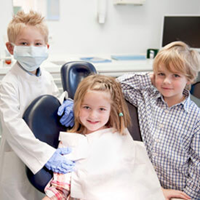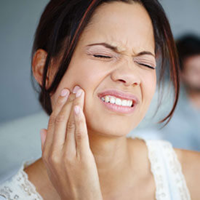what is a dental exam?
The best way to stay healthy and avoid dental issues is by getting them diagnosed before they develop into bigger conditions, these issues can be identified during a dental exam. Dental examinations at Riley Dental assess your overall and oral health by looking for tooth decay, disease, enamel wear, and signs of oral cancer. We utilize intraoral cameras to detect cavities and fractures in the teeth that x-rays can miss, helping to identify them before they become painful. Dr. Luke Riley will examine your bite and jaw, and digital x-ray images will be used for a better view of the hidden problems in your teeth, jaw, and gums. After your exam, Dr. Riley can determine your need for any treatments or procedures. If you live near the Fort Worth/Haslet area, make an appointment for a dental exam for your family at Riley Dental.
what is an Oral Cancer Screening?
Oral cancer is an abnormal group of cells in the mouth, gums, lips, jawbone, tongue, salivary glands, and throat. Each dental examination performed by Dr. Riley includes a visual screening for oral cancer to check for any symptoms, including inflammation, sores, lesions, and lumps. Our practice also offers OralID enhanced oral cancer screenings, a noninvasive, nonradioactive visualization technology, to detect early changes in the skin in your mouth which can lead to cancer. Should any areas of concern be discovered, a biopsy can be done, or you may need care from a specialist.
Dental Exam Reviews
Why Is A Dental Exam Important?
Dental exams at Riley Dental in Haslet, TX are pivotal for maintaining optimal oral health. It allows for early detection of potential issues like tooth decay, gum disease, or oral cancer. Early detection increases the likelihood of successful, long-lasting treatment. These check-ups also assess your bite and jaw alignment, helping to identify and manage conditions like temporomandibular joint disorder (TMJ). By evaluating the overall structure of your mouth and face, dentists can spot signs of potential problems that may not be immediately apparent. Moreover, regular dental exams allow Dr. Riley and his team to guide and reinforce good oral hygiene habits, fostering better overall health.
who should get a Dental Exam?
Haslet, TX residents of every age should get a dental exam every year. Some of the most common conditions do not have signs you can see.
The ADA (American Dental Association) suggests children visit a dentist before they turn one or by the time their first tooth comes in. Dr. Riley can speak to common problems, including using pacifiers, teething, and baby bottle decay. Our team at Riley Dental can teach you ways to clean and care for your baby's teeth and to ensure they develop good habits early in life.
what does a dental exam include?
Your exam will begin with a cursory evaluation of your teeth, tongue, gums, throat, the roof of your mouth, inside your cheeks, and other checkpoints. A member of Dr. Riley's clinical team will take x-rays using our integrated digital radiology system and check for abnormal gum tissue. Dr. Riley will evaluate your neck, head, and jaw, including the bite and temporomandibular joints (TMJ), review any conditions you may have, prescriptions you are taking, and discuss concerns discovered and your treatment options. Lastly, Dr. Riley will check any existing restorations you may have to assess their wear and fit.
will I need a Follow-Up after a dental exam?
When to schedule your next appointment will be based on the results of your exam. If Dr. Riley doesn't find any problems, you can follow a home oral care routine with flossing and brushing every day as recommended by your dental hygienist along with your biannual dental hygiene cleanings and exams with Riley Dental. Should Dr. Riley find any treatment needs and/or concerns, procedures and treatment options can be reviewed and planned.
keep your teeth healthy and happy
True oral health means being proactive with preventive care, not just going to the dentist when something is wrong. Being proactive is not only better for your teeth and gums but also better for your wallet. Maintaining your biannual dental exam schedule can help you to minimize problems by catching them in the early stages.
Dental exam FAQ
Do dental exams hurt?
Dental exams are so important because they prevent the need for extensive or painful treatments later on. The good news is that none of the techniques performed in a dental examination are considered painful. Our team always strives to provide patients with gentle and compassionate dental care.
How safe are dental X-rays?
Dental x-rays do involve very low levels of radiation. However, there is little to no risk in getting a digital x-ray at our office. Our clinical team is also careful to limit the amount of radiation needed to get an accurate image of your teeth and gums.
What if I just want my teeth to look good?
It's always in your best interest to schedule regular dental exams — so your teeth and gums are healthy and appear more attractive. The specialists at Riley Dental also provide a wide variety of cosmetic treatments like teeth whitening and veneers so you can enjoy a more beautiful smile.
Will my insurance cover a dental exam?
We believe finances should never be a barrier to receiving quality care, so we can talk to your insurance company to understand your coverage and any personal expenses. If you do not have insurance, Riley Dental offers several in-office payment plans and accepts third-party financing via Care Credit.
What does a dental exam consist of?
A dental exam can be split into the three parts. The first is a dental cleaning to remove any buildup of placque on your teeth. The second is an in-depth examination of your teeth and gums. And finally, we may ask for any x-ray of your teeth if we spot any abnormalities.
Is a dental exam the same as a dental cleaning?
No. In a dental exam, our staff will take a careful look at your teeth, mouth, and gums to identify any potential problems. During a cleaning, we'll focus on scraping plaque and tartar from the exterior of your teeth.





